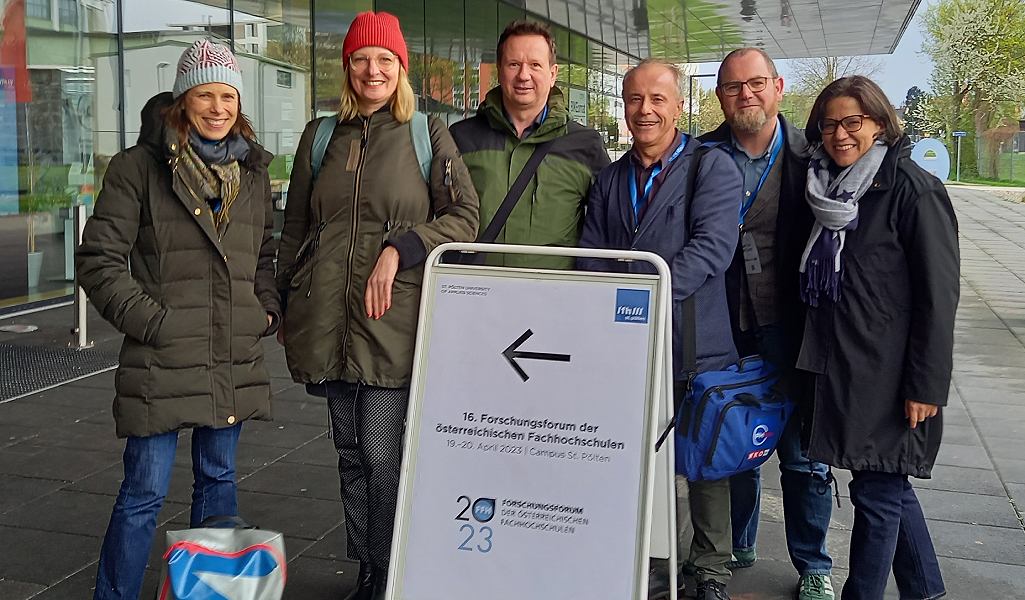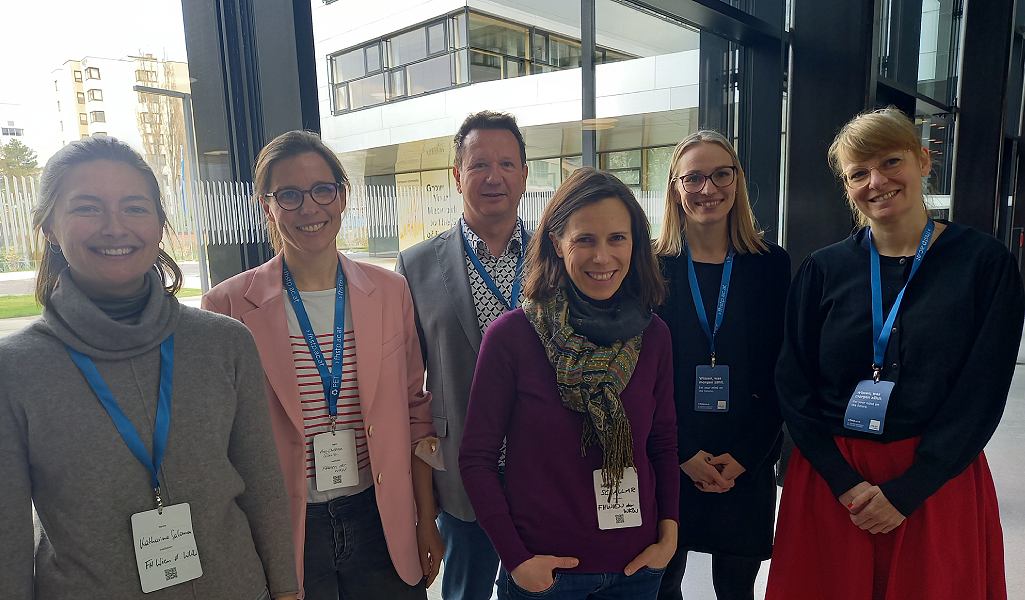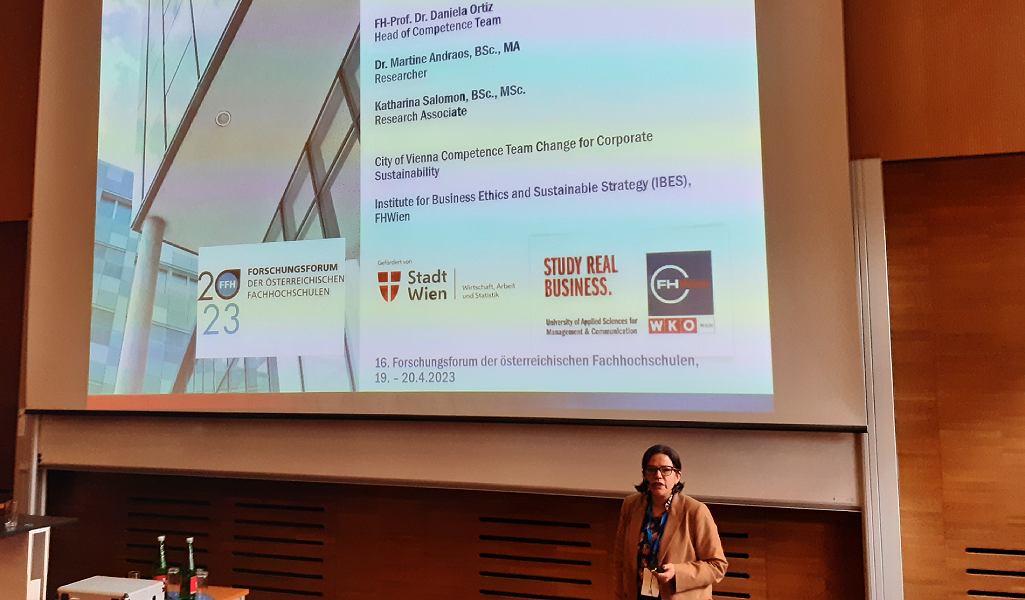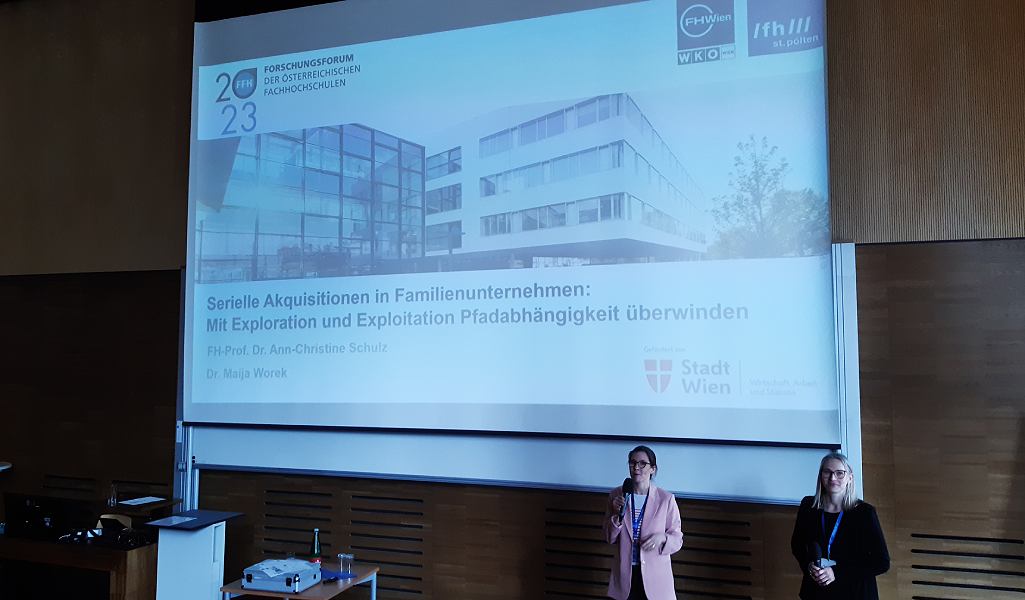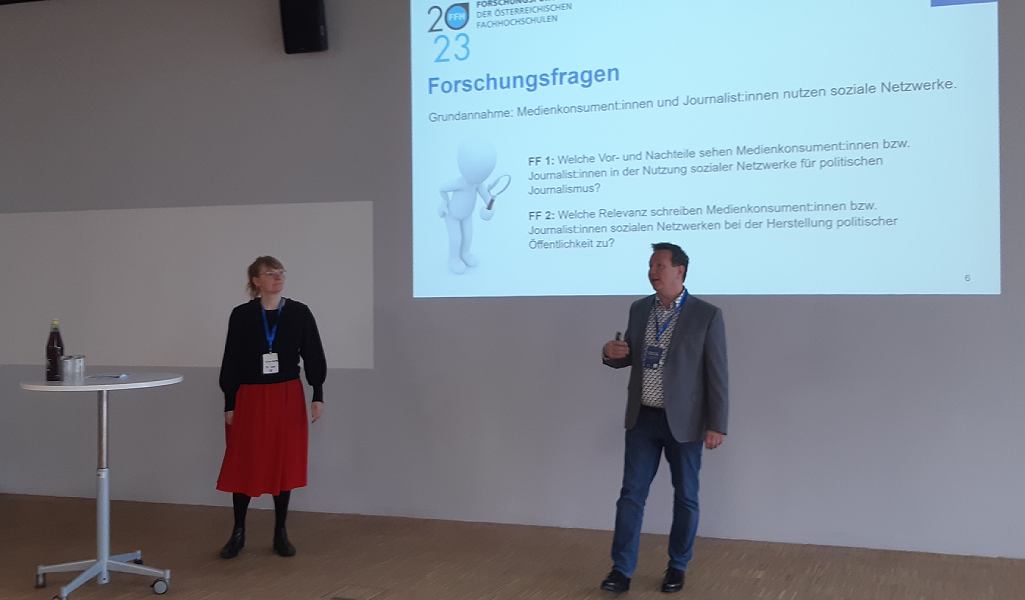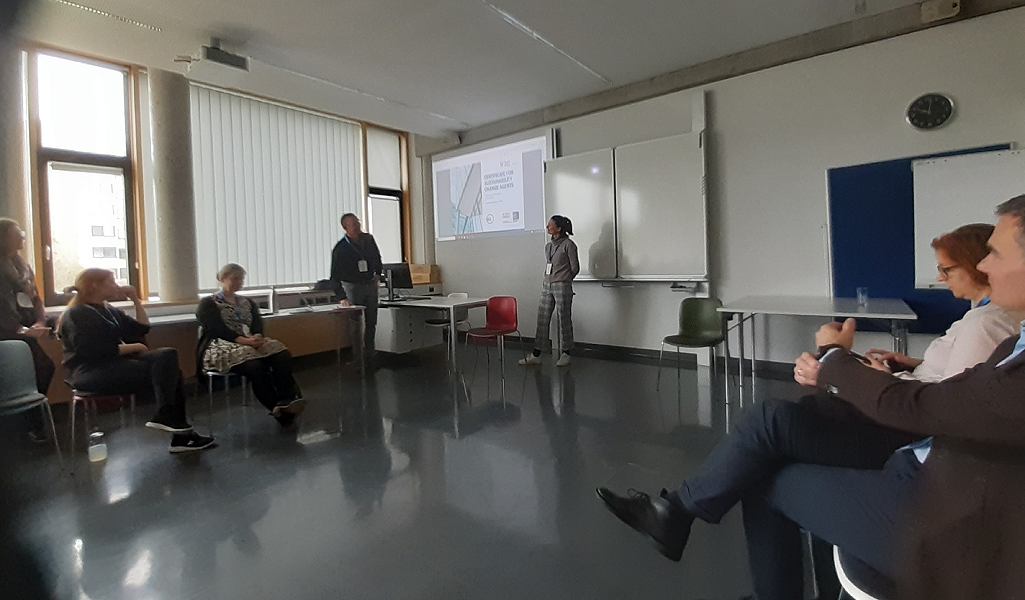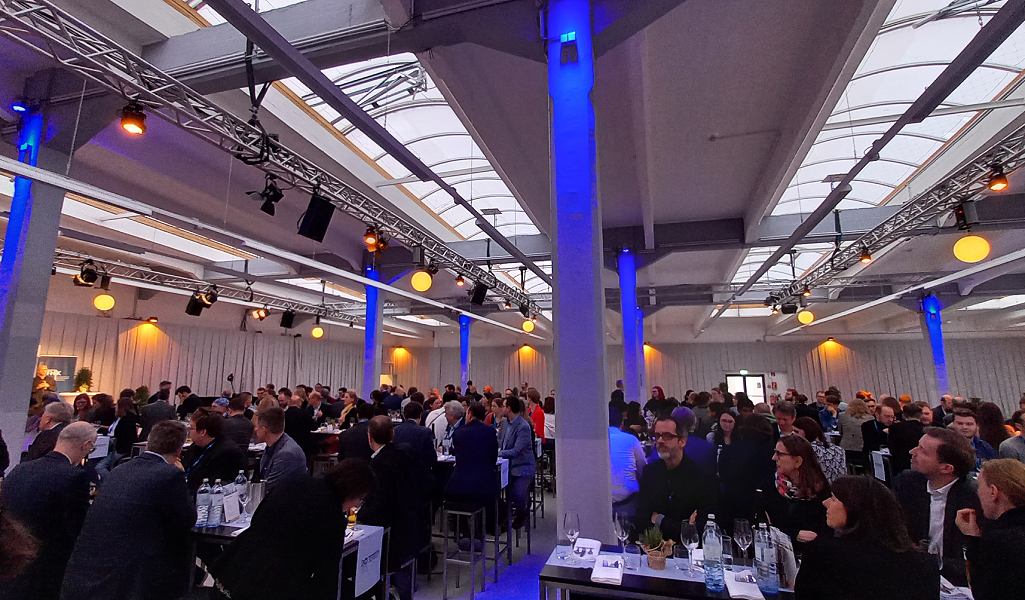Researchers at FHWien der WKW presented current findings on sustainable business, journalism & social media and the transformation of family businesses at the Research Forum 2023.
On April 19 and 20, 2023, the 16th Research Forum of Austrian Universities of Applied Sciences took place at FH St. Pölten. Following the motto “Connecting Research”, research was on the trail as a “connecting element”. Because research connects questions and solutions, as well as people – and that across national borders. Six researchers from FHWien der WKW gave four talks on the topics “Connecting Sustainability”, “Connecting European Regions”, “Connecting Society” and “Connecting Business and Innovation”.
Sustainability in business and education
On the first day of the research forum, Daniela Ortiz, Academic Head of the Institute for Business Ethics and Sustainable Strategy (IBES), showed how social and environmental goals can become part of successful business models. This sustainable innovation capability requires not only targeted collaborations but also an appropriate mindset of the participants. The presented preliminary results of the Stadt Wien Competence Team “Change for Corporate Sustainability” were also on the agenda on the second day of the research forum. Katharina Salomon, Research Associate at IBES, reported on the experiences of the Certificate Course for Corporate Sustainabilty. The optional additional offering for students was an overwhelming success. Salomon presented the pilot program, which was supported by a project advisory board. Its goal was to teach ” the change towards sustainability for business organizations”.
Social media as an arena for the public
Gisela Reiter and Andreas Hess spoke about social networks as platforms for political debate. Under the title “More of the same or digital barometer of mood?” the researchers from the Journalism & Media Management Study Programs reported on the relevance of social media for media users and journalists. They described a declining trust of the population in classic print and TV news, which have already been overtaken in their reach by online media.
Acquisitions for the transformation of family businesses
At the end of the two-day lecture series, Maija Worek from the Management & Entrepreneurship Study Programs presented “Serial Acquisition in Family Businesses” together with Ann-Christine Schulz. The leader of the MA23 project “Ambidextry in SMEs” explores the balance between efficiency and innovation to cope with the digital transformation. In this context, acquisitions for family businesses can be a possible concrete implementation for strategic transformation. These should be embedded in a comprehensive corporate strategy and serve clearly defined goals. For a successful integration of acquired companies in family businesses, the respective corporate culture is a crucial factor.
Panel discussion with a look across the border
The 16th Research Forum concluded with a panel discussion on the financial security of research at Austrian universities of applied sciences. On the one hand, this offered the current positions of the Conference of Universities of Applied Sciences and the Federal Ministry of Education, Science and Research. On the other hand, a glance was taken at the German higher education landscape and the future of research funding for universities of applied sciences was discussed.
